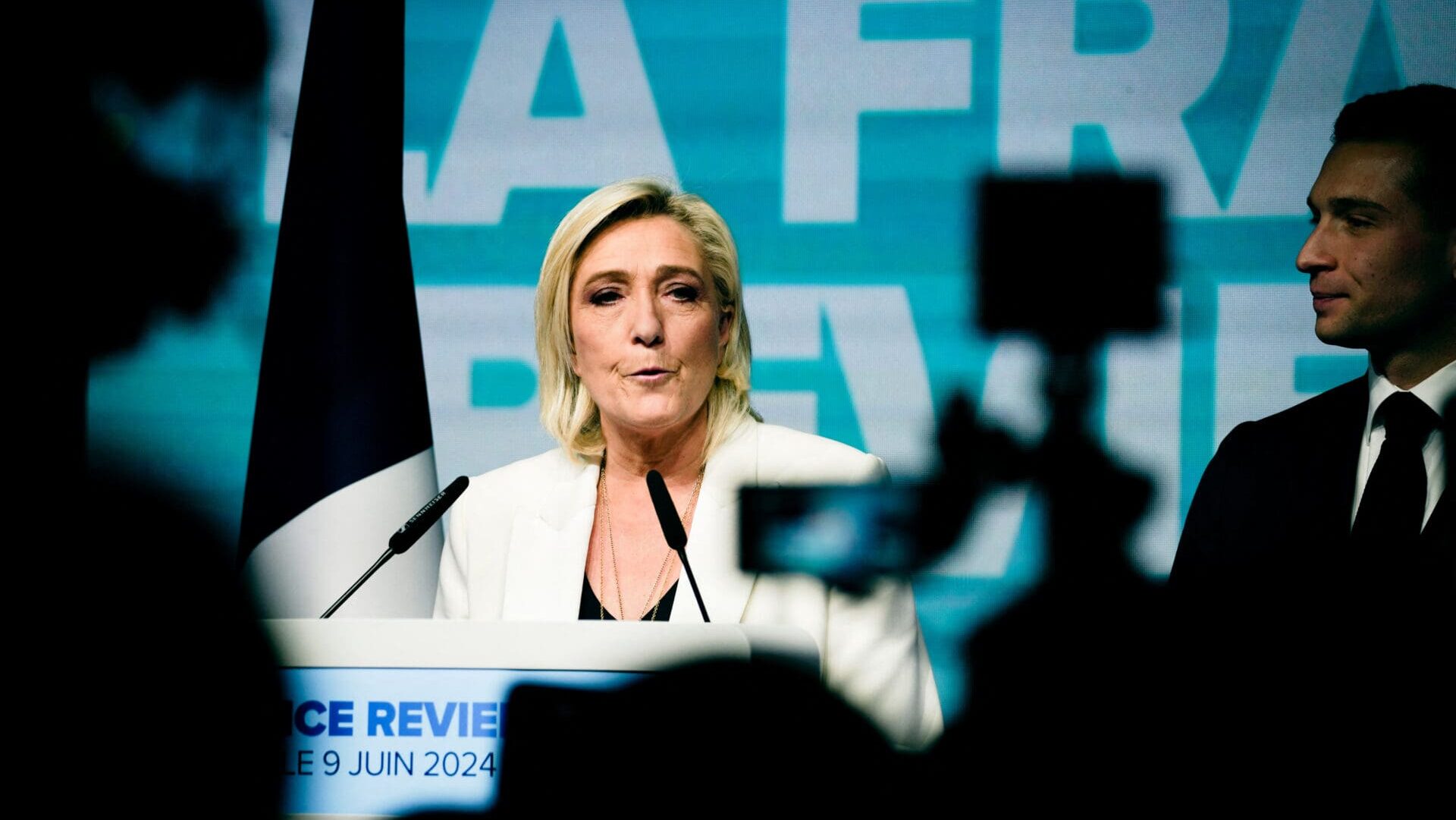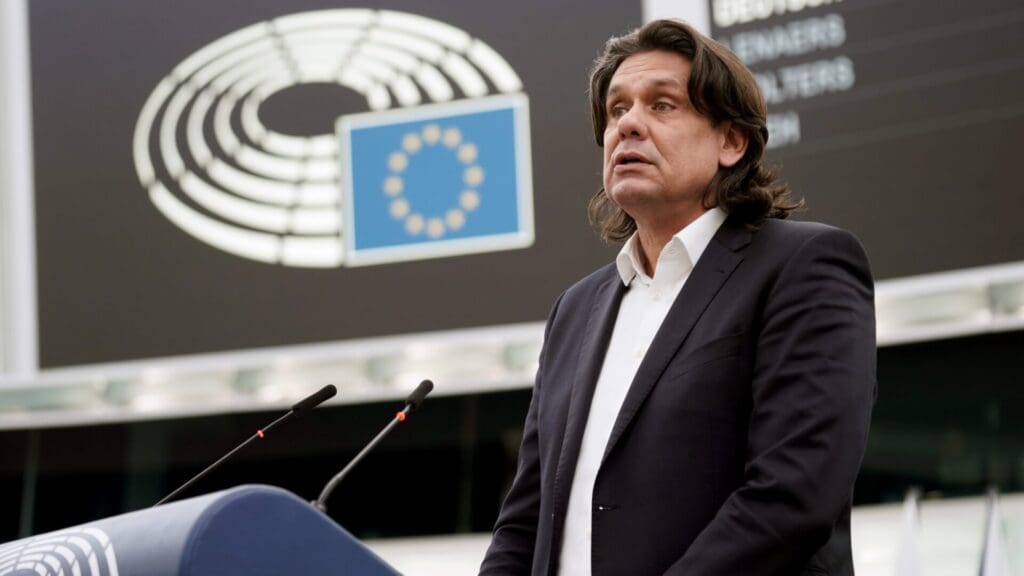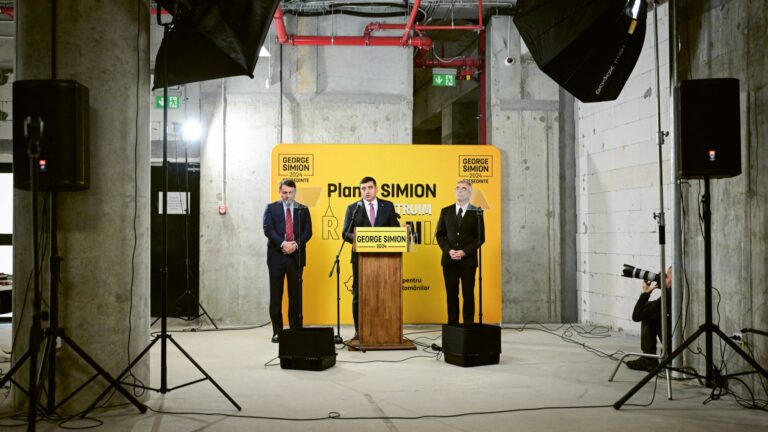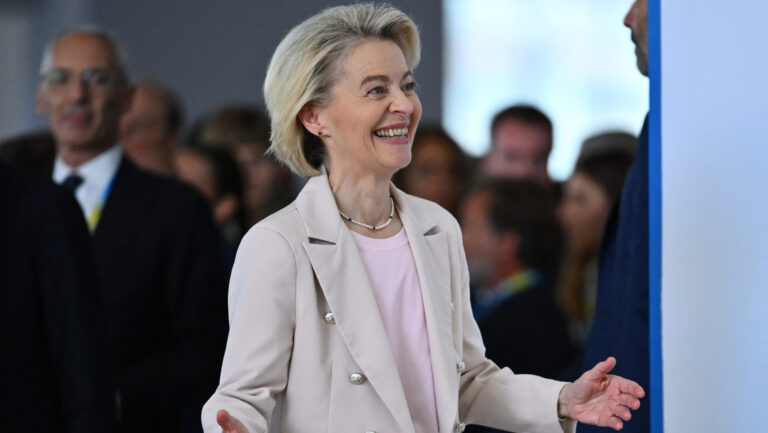On 10 June 2024, we woke up to a new Europe. This time, the often misleading opinion polls did not lie: the right-wing parties performed very well in the European elections, while the centrist-liberal forces fell back somewhat, as did the Greens and the Left. Although it was not the right-wing turnaround many expected, a right-wing shift in the balance of power is already visible in the results.
According to the official data the composition of the next European Parliament will look like this: the European People’s Party (EPP) is once again the strongest political group with 186 MEPs, followed by the Socialists and Democrats (S&D) with 135. Liberal Renew came third, losing more than 20 seats, with 79 MEPs. They were followed by the two right-wing conservative groups: the European Conservatives and Reformists (ECR) with 73 seats and Identity and Democracy (ID) with 58 seats. The Greens have also lost significant support, now holding 53 seats instead of 74. In the last place, under the category of still running, the Left secured 36 seats. Additionally, 101 MEPs are currently without a parliamentary group, but this could change significantly in the coming weeks.
Right-wing parties have made significant gains in the three largest economies of the European Union. They have won elections in France and Italy, while in Germany, the Alternative for Germany (AfD) secured a confident second place despite the scandals surrounding the party.
Macron’s Russian Roulette
Sunday night’s election show was clearly stolen by French President Emmanuel Macron, who announced that he would dissolve parliament and hold early elections in the country following a stunningly poor performance by his party, Renaissance. In France, Marine Le Pen’s National Rally (RN) party secured first place with 31.37 per cent, while the electoral alliance with Macron’s party came in second with just 14.6 per cent.
Macron’s decision is a double-edged sword:
the RN (ID) has been significantly more mobilized in European elections for years. It is possible that many Renaissance voters who stayed at home may be more inclined to participate in the parliamentary elections, given the stakes. However, if this does not happen, there is also the possibility that Macron will have to govern in a minority until the 2027 elections, which is still a considerable time away.
Macron’s poor performance clearly indicates that Europeans do not want war; they voted for peace, as Hungarian Prime Minister Viktor Orbán stated in his election assessment speech. In recent months, the French president has spoken several times about sending French troops to Ukraine, a stance many attributed to his campaign strategy. Despite these efforts, he seemingly failed to mobilize his voters effectively.
Macron was not the only leader forced to take extraordinary action due to disappointing election results. Belgian Prime Minister Alexander De Croo immediately announced his resignation in the wake of the results. ‘For us, it’s a particularly difficult evening. We lost. As of tomorrow, I will resign as Prime Minister,’ he said. His party, Flemish Liberals and Democrats (Open VLD), barely surpassed 5 per cent overall and suffered its biggest decline in De Croo’s own constituency of East Flanders, where their share of the vote dropped from 17.85 per cent in 2019 to 10 per cent this time. In Belgium, right-wing Vlaams Belang won the European Parliament elections with 14.5 per cent of the vote.
Liberal Belgium Prime Minister Alexander De Croo to resign after his party’s brutal loss to “far-right” parties in the national and European elections.
— Collin Rugg (@CollinRugg) June 10, 2024
Here he is crying about the loss.
Liberal leaders in Europe are panicking now that their citizens are supporting hardline… pic.twitter.com/QyiBfzyOuZ
Germany’s Scholz Does Not Follow Suit
The German governing parties were also dissatisfied after Sunday’s results. The opposition CDU/CSU (EPP) coalition came first with 30 per cent of the vote, followed by the AfD (ID), also in opposition, with 15.9 per cent. German Chancellor Olaf Scholz’s SPD only managed to secure third place, with 13.9 per cent of the vote, marking one of the lowest election results in the party’s history. The Greens, who had experienced significant success in the previous election, slipped back to fourth place, following the broader European trend, and the Liberals barely crossed the 5 per cent threshold to enter the European Parliament.
All this suggests, as we already knew, that
Germans are fed up with the liberal coalition, the lenient migration and unwise green policies.
AfD’s strong showing also reflects dissatisfaction with the government’s policy on Ukraine.
The relatively poor performance of the ruling parties prompted the opposition to call on Scholz to follow Macron’s lead, but the German chancellor rejected the idea of early elections. ‘The next election is scheduled for autumn next year, and we plan to hold it as planned,’ said Steffen Hebestreit, Scholz’s spokesman. ‘The idea to bring forward the elections never came up at any point.’
Just Vote for Giorgia!
In recent years, the epicentre of the European right has shifted southwards to Italy, where Giorgia Meloni and the Brothers of Italy (FdI) won a significant electoral victory in 2022. Based on Sunday’s results, their support has not declined at all in the past two years; in fact, it has increased. In an unusually stable performance for an Italian governing party,
FdI (ECR) secured first place with 27.8 per cent of the vote, earning 24 MEPs in the European Parliament.
Matteo Salvini’s Lega party (ID) won 8.98 per cent of the vote, resulting in 8 MEPs.
Meloni’s popularity is evidenced by the fact that the entire campaign was centred around her. She humorously urged voters to ‘Just write Giorgia’ on the ballot.
In an interesting and shocking turn of events in Italy, Ilaria Salis, who is under house arrest in Hungary for attacking several innocent people in Budapest in 2023 as a member of a far-left group, has entered the European Parliament as the top candidate of the Alleanza Verdi e Sinistra (AVS) party. If Salis becomes an MEP, the proceedings against her should be suspended, and she should be released.
In Austria, the right-wing Freedom Party (ID) came first, while Poland’s Law and Justice (PiS) also performed well, although not as well as in the previous European election. PiS (ECR) came second after Donald Tusk’s Civic Coalition (KO), but both parties are likely to send 20 MEPs each to the European Parliament. The Confederation, another right-wing party, secured a surprising third place with 9 MEPs, albeit it remains unclear which political group they will join.
Exciting Weeks Ahead
Following the announcement of the results, Commission President Ursula von der Leyen (EPP) called on her party’s traditional coalition partners, Renew and S&D, to continue to support and work with each other. On paper, the three political groups have the necessary majority to govern. However, as we have seen in the last phase of the current parliamentary term, the EPP often takes a different position from the liberals and the left on green and social policy issues. In such cases, the EPP may turn to the two right-wing groups, the ECR and ID.
There is also the significant question of whether a large right-wing political group will emerge, a topic much discussed in the weeks leading up to the elections. Two of the key figures in this potential development could be Giorgia Meloni and Marine Le Pen, both of whom won decisively on Sunday. However, neither has yet spoken about the possibility.
It is therefore clear that, although a complete shift to the right has not occurred, the strong performance of right-wing parties has initiated political processes in Europe—such as in Belgium and France—that could further reshape the political landscape in the near future.
Hungarian Prime Minister Viktor Orbán also shared his thoughts on the results of Sunday’s elections in a post on X. According to him, the message of the Hungarian and European elections is clear. First, Hungarian democracy is strong and vibrant. PM Orbán also praised the voter turnout, which was the highest ever recorded in a European election in Hungary.
‘Hungarians came out in record numbers to vote for #peace. Never before have so many people voted for #Fidesz in a European election. With this, we have achieved one of the best election results in Europe,’
the Hungarian prime minister pointed out. Regarding the results of the elections in other EU Member States, Mr Orbán noted that the political landscape of the continent has shifted to the right, and more importantly, towards peace.
‘We will build on these results in the coming months to achieve our goals, as Hungary takes over the Presidency of the EU,’ he concluded.
The message of yesterday’s Hungarian and #EuropeanElections is clear:
— Orbán Viktor (@PM_ViktorOrban) June 10, 2024
1. The Hungarian democracy is strong and vibrant. We recorded the highest voter turnout ever in a European election in Hungary, 59.3%.
2. Hungarians came out in record numbers to vote for #peace. Never before…
Read more on the European elections:








